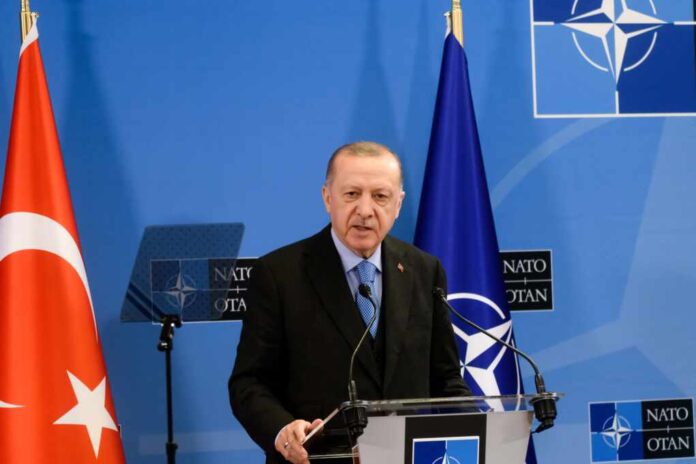
Turkey has announced that the nation will pull back on the Treaty on Conventional Armed Forces in Europe (CFE), an arms control pact considered to be vital that is aimed at keeping peace in Europe through limiting the proliferation of military-grade weapons.
On April 4, Turkish President Recep Tayyip Erdogan announced that the nation will pull back on the Treaty on Conventional Armed Forces in Europe (CFE). This move matches what NATO allies and Russia have already done, showing a shift away from agreements made during the Cold War era.
Russia left the treaty first, in November last year, saying the treaty was outdated because of the West’s support for Ukraine and sanctions against Moscow. After Russia left, the United States and other NATO countries also stopped participating, saying the treaty wasn’t useful anymore.
Turkey’s decision comes at a time when its relationship with the United States seems to be getting better. For example, the U.S. recently agreed to sell Turkey $23 billion worth of F-16 fighter jets, missiles, and bombs.
More Cold War Era Treaties Collapse As Turkey Suspends EU Arms Limitation Deal https://t.co/YwKIyLUeOx
— zerohedge (@zerohedge) April 7, 2024
The U.S. is worried about Turkey buying advanced missile defense systems from Russia. Turkey, on the other hand, doesn’t like the U.S. supporting Kurdish groups in Syria, which Turkey views as terrorist organizations. So, there are some major disagreements between the two NATO members.
Erdogan has also come out publicly against embattled Israeli President Benjamin Netanyahu, who the Turkish president compared to “Adolf Hitler” over the current Israel-Hamas war.
Turkey removing itself from the bounds of the CFE is an example of Cold-War era security agreements that have fallen apart. Other examples include the 1987 Intermediate-Range Nuclear Forces (INF) Treaty and the Treaty on Open Skies, which both the U.S. and Russia have left.
The move comes at a time of heightened tensions worldwide,
with the U.S. involved in several potential tinderboxes of conflict, and signals trouble in paradise for the military alliance.














